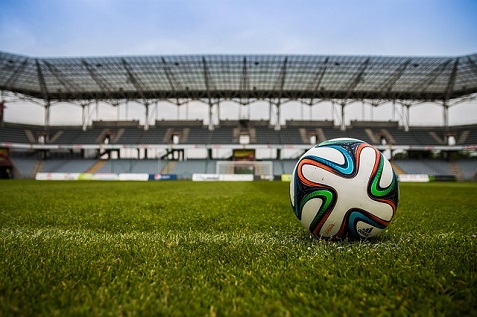
Soccer in the U.S. has seen something of a resurgence in recent years. After the disaster NASL turned into, Major League Soccer is proving more durable. Previously the sole preserve of children, this incarnation of professional association football in the USA has a more solid foundations than its ill-fated predecessor.
The U.S. Men’s National Team played a huge role in securing the nascent league’s future. The 2010 World Cup in South Africa and the squad’s performance came just at the right time for the MLS.
Going into the tournament, the USA had finished as runners-up in the previous year’s Confederation’s Cup. Reaching the last 16 of the World Cup confirmed that the USMNT was no longer a soft touch in world football. Repeating that performance at the 2014 World Cup in Brazil confirmed the benchmark.
Solid records in the CONCACAF Gold Cup and Copa America underline that the USMNT is building a lasting base in the country. The U.S. Women’s National Team continues to be a world force and MLS gets a bounce from that. A successful women’s game means soccer is seen as more inclusive than baseball. Not more popular – there’s no sense it will ever overtake one of the native sports – but certainly more welcoming.
Players such as David Beckham transcend their nationalities. He, Ashley Cole and Stephen Gerrard kept a high profile for the MLS abroad, while Frank Lampard and Andrea Pirlo continue that trend, plying their trade for a New York side who are 6/1 to capture this year’s MLS title according to football betting.
Orlando’s signing of Kaka may yet prove a masterstroke; here is a well-known and exceptional player, like Pirlo, from a soccer-mad country. The MLS’s reputation is still enhanced by these players. Marketable and popular at home, they appeal to expat communities in the U.S. as well.
The emergence of China as a rest home for the tired and weary has done the MLS a favor. Players chasing money will move there, but with its salary caps, the Americans are trading on the country as a place to live as well as a decent standard of soccer to play.
While China is the larger soccer betting market, there’s anecdotal evidence that more serious soccer aficionados prefer the MLS. It’s a sign of commercial potential, which could make UEFA’s bigger leagues take a long, hard look at the Americans.
For once, the U.S. administrators have positioned their soccer perfectly. New clubs trade on old names. San Jose Earthquakes and Seattle Sounders nestle alongside the anglicised New York City, Orlando City and Atlanta United and the European styling of Real Salt Lake and FC Dallas. The roots of football are acknowledged, set to enhance their appeal overseas.
And this is the key phase for MLS. The EPL blazed a trail around the globe, raising incredible revenues. Others can certainly follow in their footsteps, and while English soccer remains ever popular, the fees paid by broadcasters seem set to, at best, stagnate.
As other leagues become more popular, the reality is that the EPL is going to find itself squeezed financially. The MLS is one of those who will benefit; if they can attract commercial support, better players can be enticed across the Atlantic in the prime of their careers.
When that happens, the EPL had better beware.
Related Posts
Posted in: Lifestyle
Tags: sports betting





